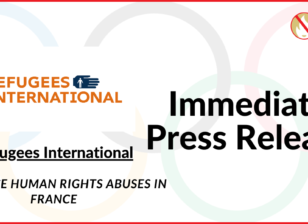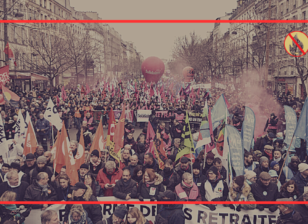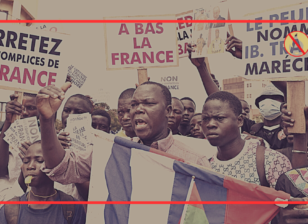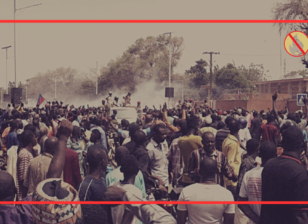Environmental Crisis Looming Over Paris Summer Olympics 2024
In July 2024, France will be hosting Summer Olympics in Paris. The opening ceremony is planned to be held at Seine River where around 600,000 spectators will be present. Despite the excitement and enthusiasm among organizers and audiences, there are significant environmental crises that are casting a shadow over the preparations for the 2024 Summer Olympics. Major concerns have arisen pertaining to the poor water quality of the Seine River, which has been planned for hosting the events like open water swimming and the swimming leg of the triathlon. The water quality crisis is the result of an overflow of untreated waste and heavy rains into the river, that has caused pollution and ultimately pose a noteworthy health risk to swimmers. This article tries to highlight these environmental crises.
Water Quality and Health Concerns
Recently, the Open Water Swimming World Cup event has been postponed, along with training sessions being canceled because of substandard water quality. This has raised serious concerns about the health and safety of the athletes participating in these sporting events. Moreover, different water quality tests have identified the presence of fecal bacteria E. coli and Enterococcus in the river which is an anticipation of potential health risks for swimmers. This situation rigorously demands authorities and organizers to take immediate corrective measures, and provide comprehensive solutions for the sake of the well-being of athletes.
Impact on Olympic Preparations
This analysis tries to articulate that the open water swimming and triathlon events are not just part of the testing phase for the Paris Olympics 2024, but also essential to the actual gaming competition of the Olympics and Paralympics. As mentioned earlier, the training session has been canceled due to poor water quality, and the planning for the event has been disrupted. Fears have arisen that any further cancellations or disruptions could tarnish the image of Paris as a host city, and undermine the credibility of the Games as a whole. Hence, it is crucial for the organizers to take necessary actions to resolve and mitigate this grave issue promptly and effectively.
History of Pollution and Efforts for Restoration
Historically, despite previous efforts and commitments, pollution continues to be a problem in the Seine River, which is 20 to 25 meters deep and 150 meters wide. In the past certain measures have been taken to restore the water quality like putting a ban on bathing in Seine since 1923, but no significant positive results could have been extracted yet. From a contemporary perspective, the ongoing construction of an underground overflow basin is a positive step to mitigate the issue, but it is very crucial for the project to be completed before the Olympics to prevent further contamination and ensure the success of water-based events.
Comparison with Previous Olympics
This is not the first time the planning and organizing of the Summer Olympics is facing such environmental concerns, particularly water pollution. For instance, during the 2016 Summer Olympic Games waterborne virus issues arose in Rio, and water quality problems in Tokyo Bay in Tokyo Olympics 2020. These examples highlight the repeated challenges related to hosting water-based sporting events in polluted environments. Undoubtedly, greater emphasis is needed to adopt a proactive approach and provide long-term solutions to such menace.
Environmental Awareness and Public Perception
The broader issue of environmental awareness and sustainability in hosting such mega sporting events as the Olympics has been highlighted by the ongoing water pollution crisis. There is no denying the fact that the disruption and cancellation of events have led to the negative perception of the public and ultimately fueled the criticism. It definitely sheds light on the importance of the integration of environmental considerations into infrastructure development and planning of the event.
Immediate and Long-term Solutions
The greatest and imminent challenge at hand is to provide an immediate and sustainable solution to such issues pertaining to hosting mega-events like Paris Olympics. Despite short-term testing of water quality is going on to determine the feasibility of upcoming events, a long-term and comprehensive strategy is direly needed to address the underlying environmental pollution issues. To avoid future occurrences of disruptions related to pollution, a wide range of investments in sewage infrastructure and water management projects are direly needed.
To Wrap Up
All in all, among many challenges faced by the upcoming Summer Olympics in 2024, the Seine River’s water quality pertaining to the environmental crisis definitely poses a substantial challenge for the host country i.e., France, and particularly the host city i.e., Paris. Certainly, the reputation of the host city, the safety of participating athletes, and the success of events based on water are at stake. To ensure the health and well-being of participants along with upholding the integrity of the Olympic Games swift and effective actions are direly required. Moreover, this issue of water quality has highlighted the demand for sustainable environmental stewardship and proactive event planning in the context of hosting global sporting events.





